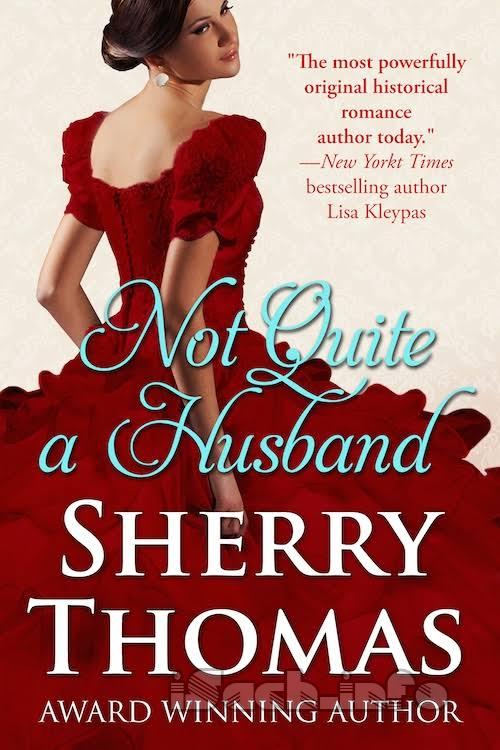Chapter 2
M
r. and Mrs. Braeburn were originally from Edinburgh. Mr. Braeburn was a Presbyterian minister and an avid scholar of the lands and peoples between the frontier of Russia and the frontier of India. Mrs. Braeburn said, laughing, that she’d married Mr. Braeburn thinking she’d be arranging flowers for the church and taking soup to sick parishioners, only to spend most of their married life tramping all over the Himalayas. For the past ten months they’d lived in Rumbur Valley, studying the cosmology of the Kalasha, the last unconverted people of the Hindu Kush—an island of paganism in a sea of Islam.Because the stacked stone Kalasha house the Braeburns occupied was not much larger than a postbox, tea was held alfresco. The Commander, the Braeburns’ small Portuguese cook, had managed to make a fresh cake in the time since Leo’s arrival. With eggs, Mrs. Braeburn informed him, smuggled in two days before from the nearest Muslim village, since the Kalasha’s religion frowned upon both chicken and eggs in the diet.
Leo managed a grin at this account of The Commander’s ingenuity. Mrs. Braeburn returned a nervous smile. She was waiting, Leo realized, for Bryony to join them. And then The Questions would finally be asked.
When Bryony did appear, conversation stopped. She carried the fishing rods in her right hand, the bucket in her left. She’d fished often when she was fifteen, spending the whole day by herself, with a basket of sandwiches and a canteen. His eleven-year-old self used to watch her from the opposite bank of the stream, wishing he knew what to say to the silent, intense girl from the neighboring estate.
To me, you no longer exist.
To her, he’d never existed, except those few wonderful weeks before their wedding that distant spring of 1893.
He watched her wend her way past women in vibrantly embroidered black robes guiding water into the irrigation canals that supplied the fields of wheat, women in vibrantly embroidered black robes shaking ripe mulberries from trees onto blankets, women in vibrantly embroidered black robes cutting hay to make winter fodder.
Mrs. Braeburn said something about the Kalasha men being away at summer high pasture. Leo nodded, barely registering her words. Bryony handed the bucket and the fishing rods to The Commander, who was chopping carrots on the veranda of the house, with a soft “Only one, I’m afraid.” And then she approached the table at last.
He rose. His joints ached with the movement—all the traveling had taken its toll on him. The fever that had ragged at him since he set out from Chitral in the morning was beginning to subside, the chills largely gone, but his headache still lingered. He wished he’d thought to take some more phenacetin in Ayun.
“Mrs. Marsden,” he murmured as he pulled out her chair.
The corners of her lips tightened. She glanced at him, then at the Braeburns, as if trying to gauge how much truth had been irreversibly spilled.
“Oh good, now we are all here,” said Mrs. Braeburn, her cheer rather overbright.
She poured tea for Bryony, who accepted the teacup, but set it down in the same motion. “Do you still have your special whiskey, Mr. Braeburn?”
Mr. Braeburn cleared his throat. “Why, yes.” “Would you mind serving us a few drops of it?” So whatever she’d decided needed the help of strong liquor.
“Of course not,” said Mr. Braeburn, somewhat puzzled. “I was going to serve it at dinner, but I suppose now is as good a time as any.”
He gestured at The Commander. The Commander ducked into the house and promptly returned with a bottle of whiskey and four small glasses.
Mr. Braeburn poured. “What shall we drink to?”
“To fond memories,” said Bryony, raising her glass. “Mr. Marsden and I are leaving as soon as my belongings can be packed. I wish to take this moment to thank you both for your excellent and admirable friendship.”
“So soon?” gasped Mrs. Braeburn. “But why?”
Bryony gave Leo a hard stare. “Mr. Marsden can tell it far better than I.”
Across the table she sat rigidly, as tightly wound as the mainspring of a newly cranked clock. He still remembered a time when the tension she carried within her had been unbearably erotic to him, when he’d believed that all she needed was some proper lovemaking to turn her limp, relaxed, and happy.
Life had its way of beating humbleness into a man.
Bryony felt it in her stomach, the keen pitch of interest around the table, including her own—she had no idea what he could possibly say. But he was in no hurry to gratify the collective curiosity. With great leisure, he finished the remainder of the cake on his plate.
He reached for his glass of whiskey. Instead of lifting it, however, he only turned it a few degrees by its base. For the first time, she noticed the condition of his hands. When they’d been married, he’d had very fine, gentlemanly hands. Today his fingers were rough and chapped, with faint cuts and bruises along his knuckles.
But then he smiled at his audience and she forgot all about his hands, for it was a smile that conquered, as sweet as it was merciless. With that smile came a light in his eyes, an irresistible light: This was the Leo who had taken London by storm.
“It’s a long story,” he said, taking a sip of Mr. Braeburn’s whiskey, “so I will tell only a very condensed version of it.
“Mrs. Marsden and I grew up on adjacent properties in the Cotswold. But the Cotswold, as fair as it is, plays almost no part in this tale. Because it was not in the green, unpolluted countryside that we fell in love, but in gray, sooty London. Love at first sight, of course, a hunger of the soul that could not be denied.”
Bryony trembled somewhere inside. This was not their story, but her story, the determined spinster felled by the magnificence and charm of the gorgeous young thing.
He glanced at her. “You were the moon of my existence; your moods dictated the tides of my heart.”
The tides of her own heart surged at his words, even though his words were nothing but lies.
“I don’t believe I had moods,” she said severely.
“No, of course not. ‘Thou art more lovely and more temperate’—and the tides of my heart only rose ever higher to crash against the levee of my self-possession. For I loved you most intemperately, my dear Mrs. Marsden.”
Beside her Mrs. Braeburn blushed, her eyes bright. Bryony was furious at Leo, for his facile words, and even more so at herself, for the painful pleasure that trickled into her drop by drop.
“Our wedding was the happiest hour of my life, that we would belong to each other always. The church was filled with hyacinths and camellias, and the crowd overflowed to the steps, for the whole world wanted to see who had at last captured your lofty heart.
“But alas, I had not truly captured your lofty heart, had I? I but held it for a moment. And soon there was trouble in Paradise. One day, you said to me, ‘My hair has turned white. It is a sign I must wander far and away. Find me then, if you can. Then and only then will I be yours again.’”
Her heart pounded again. How did he know that she had indeed taken her hair turning white as a sign that the time had come for her to leave? No, he did not know. He’d made it up out of whole cloth. But even Mr. Braeburn was spellbound by this ridiculous tale. She had forgotten how hypnotic Leo could be, when he wished to beguile a crowd.
“And so I have searched. From the poles to the tropics, from the shores of China to the shores of Nova Scotia. Our wedding photograph in hand, I have asked crowds pale, red, brown, and black, ‘I seek an English lady doctor, my lost beloved. Have you seen her?’”
He looked into her eyes, and she could not look away, as mesmerized as the hapless Braeburns.
“And now I have found you at last.” He raised his glass. “To the beginning of the rest of our lives.”
Leo had not come alone—he’d hired the necessary personnel in Chitral to ensure a comfortable journey for Mrs. Marsden, he’d explained to the Braeburns. The coolies he’d brought with him began taking down Bryony’s tent shortly after tea.
The tent, rugged and waterproof, was open and cool in summer. In winter it manfully bore a foot of snow and, with the help of her heaviest overcoat and two paraffin burners, kept her blood from congealing in her sleep.
Bryony experienced a moment of sharp distress as the tent came apart. Or perhaps it was fear: She was afraid to go with him.
The collapsing of the tent exposed its paltry contents: a camp bed, two steamer trunks, a folding table, and a folding chair. The table held a collection of old medical journals and her medical bag. One steamer trunk had a few toiletry items on top; the other her straw hat, a shawl, and two pairs of gloves.
Casually, he picked up her hat and turned it in his roughened hand. The knuckles of his other hand grazed across the brim. She swallowed. The gesture was intensely intimate, almost as if he were touching her hair. Her skin.
He set the hat down, went to his horse, and came back with another hat. “I took the liberty of buying you this. You can get sunburned easily in the lower altitudes if you are not careful.”
The hat he presented her was practically a helmet, with a rolled-up flap in the back that released to shield the nape, and a veil of netting in the front, in case the sun became too harsh for the eyes.
His presumption galled her: He’d known precisely how he’d bend her to his will, long before he ever set foot in Rumbur Valley.
She returned the hat to him: “I cannot accept articles of clothing from a gentleman.”
It was a convenient excuse. He was not related to her—or married to her. And therefore had no business buying such things for her.
He glanced down at the rejected hat. “That rule, if I’m not mistaken, does not apply to a gentleman who has f**ked you.”
At the last two words, he lifted his eyelashes. Such a current of heat jolted through her that she was unable to slap him as he richly deserved.
“You, sir, are no gentleman,” she said. “And no, thank you. I will not wear that hideous thing.”
He looked at her a minute, his gray eyes the color of morning mist, and she could not tell whether his expression was disgust, amusement, or something too dark and raw for easy labeling.
“Suit yourself,” he said. “Let’s have your things packed.”
Everything she had went on her person, on a coolie, or on a mule. Scarcely an hour after tea, they were shaking the Braeburns’ hands, saying their farewells and promising to write regularly.
After one last embrace with Mrs. Braeburn, Bryony mounted the spare horse that Leo had brought for her. He handed her the reins.
“I hope you are happy,” she said quietly, for his ears alone.
He gave her a lopsided smile that was at once intimate and distant. “Oh, intemperately so.”



 ePub
ePub A4
A4